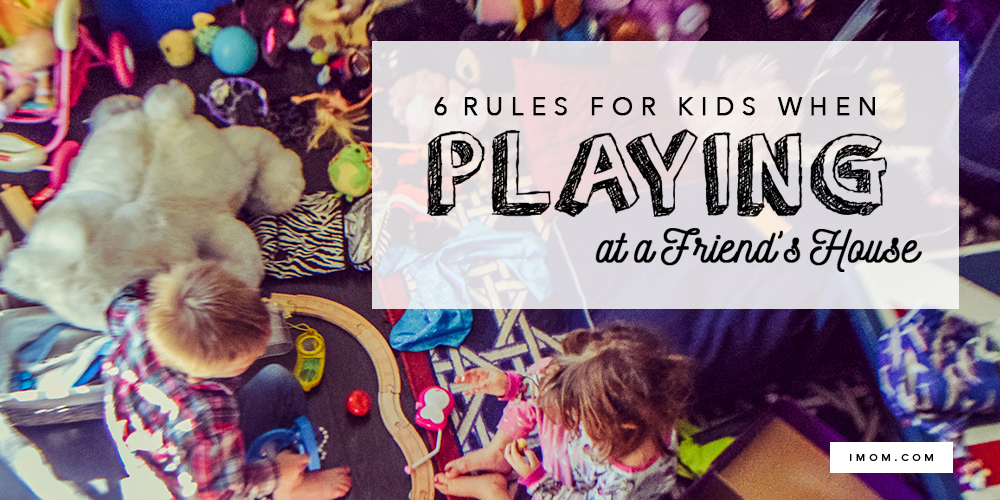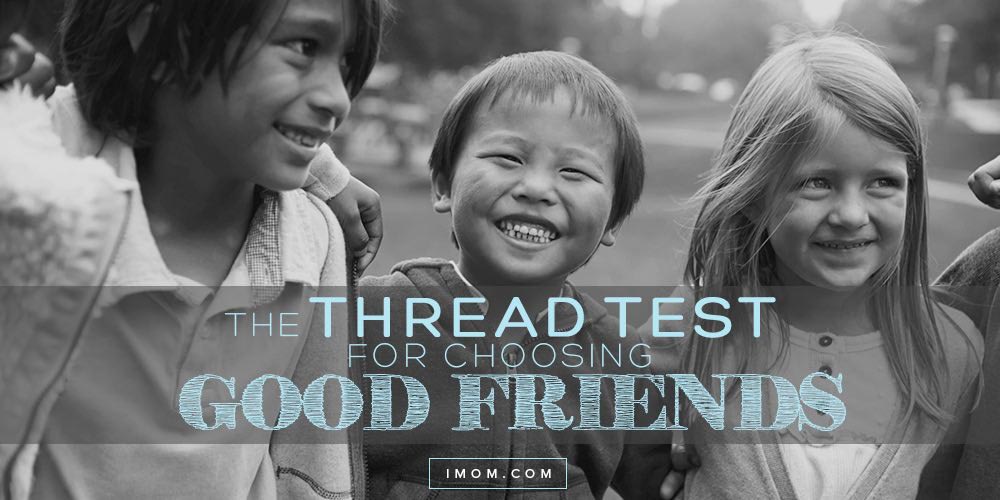When a friend of mine was eight he befriended two older boys in his neighborhood. Since all he had were sisters he was happy to finally have boys to rough house and play sports with. One day he was put in an awkward position when the older boys asked him to go steal some of his dad’s cigarettes for them. He didn’t feel right about it, but couldn’t resist the pressure. After swiping the box and running outside the boys slunk into the woods. Fortunately, my friend’s mom saw them head into the woods and sensed something wasn’t right. Before anything happened she broke it up, sending the older two boys home and having a talk with her son about peer pressure.
Your kids’ friends are going to have an impact on them, positively and negatively. It’s important to know who they are so you can help your children navigate and discern what’s right from wrong. Here are five essentials to know about your kids’ friends.
1. Who their parents are.
When we say “who,” we’re not simply referring to where his dad works and which neighborhood they live in. It’s important to know as much as possible about the families these kids come from, and how closely their values and parenting style align with your own. This is especially important if your child will be spending time in the other child’s home for a sleepover or playdate. If you don’t have reliable sources in the form of mutual friends, you’ll have to take the initiative and get to know the family on your own. Invite the mom for coffee or include the family in a gathering of friends. You really can’t know too much! (Note: We realize this is more difficult in a larger city than in a small community. But do the best you can.)
2. Who the child’s other friends are.
You can tell a lot about a person by the company they keep. If your daughter’s friend hangs out with an older or faster crowd, that can tell you a lot about the influences and ideas your child will be exposed to through the friendship. By contrast, if your child’s new friend has close relationships with other children you know to be great kids from like-minded families, then that tells you a great deal, too.
3. What kind of student he or she is.
We’re not talking about raw, God-given intelligence here—none of us gets to choose how much of that we receive. But if your child’s friends are good students who place importance on academic achievement and working hard in the classroom, it can help influence your child to do his best, too. On the flip side, a kid who thinks school is “stupid” or “boring” and doesn’t care about his grades may rub off on your child in a negative way. It also indicates what type of work ethic and sense of responsibility the child possesses.
4. Whether the child respects adults and other authority figures.
This can be tough because almost every child puts on a good face around adults (remember Eddie Haskell from Leave It to Beaver?). But this is another area in which the attitudes of your kids’ friends will have an effect on your child. If they have friends who constantly push back against authority and look for ways to beat the rules, your child will learn to do the same. Listen up when they talk about their teachers and parents in your presence—their true attitudes will seep out in the way they discuss them.
5. If the child shares a similar faith.
We’re not suggesting that every friend your child has must be a member of the exact same church in the same denomination your family has chosen. But you must realize that—especially in the grammar school years—children are forming a worldview based upon all the information and influences around them. A friend who doesn’t share your child’s faith can cloud that picture and create confusion, so proceed with caution. In addition, resist the urge to send your child into these relationships as a “missionary” of sorts until you know beyond a shadow of a doubt that he or she is equipped to be the influencer, and grounded enough to resist being the influenced. In most cases, this isn’t possible until late adolescence or young adulthood.
If your child is struggling to make friends, be sure to discuss it. Also, be sure to talk about what makes a good friend.
What else would you add to this list?
Dana Hall McCain writes about marriage, parenting, faith and wellness. She is a mom of two, and has been married to a wonderful guy for over 18 years.










